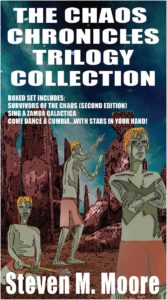Pompous titles…
Not long ago—with COVID-19, it now seems like eons—I was amused when a local Montclair, NJ paper had an ad for an event at the local university here. An “Information Designer and Data Humorist” was going to give a lecture at the business school. My kneejerk reaction? “Hey, that’s me! I’m an information designer and data humorist now. I write novels!” (Generally I don’t write comedic stories, but a new title will be a sci-fi comedy.)
I suppose some people were impressed by that woman’s title. And I suppose some people need their pompous titles to buoy up an insecure or egotistical personality. (I’m not accusing the lecturer of the latter; let’s just say I’m suspicious.) For example, from the president’s daughter and son-in-law to House and Senate committee and subcommittee names, DC is full of pompous titles. The world of sports and Hollywood personalities have their fair share too.
But I’m a full-time writer, so I’m more concerned about book titles—the ones for the books I read, and the ones for my own books. Book titles can be pompous too, or, to borrow one of the bard’s, they can be “much ado about nothing.” They can even be too cute. For example, Paul Krugman’s new book, Arguing with Zombies (reviewed in this blog), is an excellent non-fiction book, but that title is both a bit both pompous and cute…and it made me pause. (It was probably created by someone else. His publisher?)
I originally thought Dan Brown’s The Da Vinci Code was about spies because of the word “code,” and I thought Jeffery Deaver’s Garden of Beasts was sci-fi horror, the word “beasts” reminding me of one of the Man-Kzin novellas I’d just finished. (These were the first two books from these authors that I read many years ago, the first bad and the second excellent.)
Considering my age at the time I read it (I was in my teens) and family upbringing, I can be excused for thinking that Asimov’s End of Eternity was either post-apocalyptic (I’d just finished C. M. Kornbluth’s Not This August), or something about the Second Coming (all this occurring long before the “End of Days” theme became popular with Christian writers, or faux-Christian writers like Chad Daybell—gee, how fast that man’s name disappeared from the news!). I’d also just concluded that the “Book of Revelation” should really be in the Old Testament because its apocalyptic God wasn’t the loving God of the New Testament.
And that’s the problem with book titles, whether they’re pompous, cute, much ado about nothing, or otherwise: they can, and often do, mislead readers. Worse, they could just be stupid. What the hell is Gone Girl about? If you read the book or saw the movie (I did the last…and regretted it, although I dozed through most of it), you know it really should be Missing Woman if the author wanted to keep it to two words. (Worse, that book, with its success that left me baffled, spawned a whole series of Gone X-titles where other authors tried to benefit from the similarity of their titles.) Stephen King has some doozies too: It could mean anything; Cell is so general that it could be a microbiology text, and It’s so meaningless (is that a pun?); and The Stand implied a copse of trees to this environment-concerned author.
“Classics” weren’t immune to this disease either. While Tale of Two Cities had something to do with Dickens’s plot, To Kill a Mockingbird certainly did not. And what the hell does Wind in the Willows mean (Mr. Toad almost ran me over with that one)? And Jane Austen’s titles are just blah (as are her novels).
Maybe this is just more proof that titles are important. They are for me. And, after all, Harry kept most of his! (That’s the Duke, not the magician.)
***

Comments are always welcome!
Come Dance a Cumbia…with Stars in Your Hand! This is my longest title, but not my longest novel—and has both direct and hidden meaning. It’s the last novel in the Chaos Chronicles Trilogy Collection, all three books sold as a bargain ebook bundle. Read together, the reader will experience centuries of future history, going from a dystopian Earth run by multinational corporations and policed by their mercenaries; to first contact out among the stars and saving a strange collective intelligence; and finally to this story of how a psychotic industrialist schemes to take over all of near-Earth space (this is my bow to Asimov’s Foundation Trilogy, and this villain is my Mule). Available in .mobi (Kindle) format at Amazon and in all ebook formats at Smashwords and its affiliated retailers (iBooks, B&N, Kobo, etc.) and lending and library services (Scribd, Overdrive, Baker & Taylor, Gardners, etc.). Hours of reading entertainment.
Around the world and to the Stars! In libris libertas!
